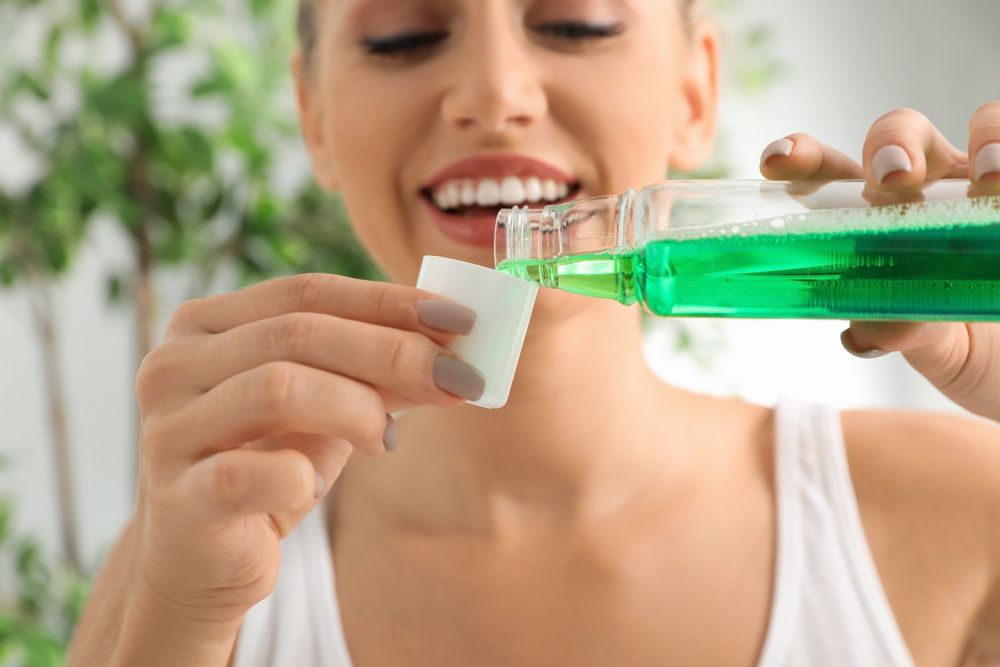Mouthwash: What it Does and When to Use it

Mouthwash, often a secondary thought in oral hygiene routines, is pivotal in maintaining dental health. At Schowengerdt Family Dentistry in Lees Summit, MO, Dr. Brian Schowengerdt understands the importance of incorporating mouthwash into daily oral care. Let’s explore what mouthwash does and the best times to use it.
What Does Mouthwash Do?
Mouthwash offers several benefits:
- Reduces Bacteria: It helps lower the bacteria count in your mouth, contributing to a cleaner oral environment.
- Freshens Breath: Mouthwash can temporarily mask bad breath and, depending on its ingredients, may help fight the bacteria causing it.
- Prevents Plaque Build-Up: Some mouthwashes contain ingredients that help prevent plaque from forming on your teeth and gums.
- Strengthens Enamel: Fluoride-containing mouthwashes aid in strengthening tooth enamel, providing an extra layer of cavity protection.
Types of Mouthwash
There are two primary categories:
- Cosmetic Mouthwash: Primarily used for freshening breath and providing a pleasant taste.
- Therapeutic Mouthwash: Contains active ingredients aimed at reducing plaque, gingivitis, cavities, and bad breath. Some may require a prescription.
When to Use Mouthwash
The ideal time to use mouthwash can vary based on your daily routine and the type of mouthwash:
- After Brushing and Flossing: This helps to remove any loosened particles and provides an additional cleaning.
- Between Meals: Quick rinsing can help dislodge food particles and freshen breath when brushing isn’t feasible.
How to Use Mouthwash Effectively
To maximize the benefits, follow these steps:
- Read the Label: Follow specific instructions regarding the amount to use and the duration of swishing.
- Avoid Diluting: Use mouthwash at its full strength unless the label or your dentist advises otherwise.
- Proper Swishing: Swish the mouthwash around your mouth for the recommended period, usually 30 seconds to a minute.
- Don’t Rinse Right Away: Avoid eating, drinking, or rinsing with water immediately after using mouthwash to allow the active ingredients to work.
Mouthwash and Dental Treatments
For those undergoing specific treatments like Root Canals, Dental Implants, or using Invisalign, mouthwash can be an important adjunctive tool. It helps maintain oral hygiene in areas that are challenging to clean.
Choosing the Right Mouthwash
Consider factors such as alcohol content, fluoride inclusion, and specific oral health needs when selecting a mouthwash. Alcohol-free versions are suitable for those who experience dry mouth or irritation.
The Role of Mouthwash in Overall Oral Care
While mouthwash is beneficial, it’s not a substitute for brushing and flossing. It should be used in conjunction with a comprehensive oral hygiene routine, including regular Dental Cleaning & Consultation visits.
Elevate Your Oral Hygiene with Expert Advice
Incorporating mouthwash into your daily oral care routine can significantly enhance oral health, offering additional protection against dental issues.
To learn more about integrating mouthwash into your oral care routine or for any other dental concerns, schedule a visit with Dr. Brian Schowengerdt at Schowengerdt Family Dentistry in Lees Summit, MO. Contact us at 816-524-3535 for personalized dental care and guidance.
Sources
- American Dental Association: Mouthwashes
- Journal of Clinical Periodontology: The Effectiveness of Mouthwash
- Clinical Oral Investigations: Mouthwash and Oral Health
